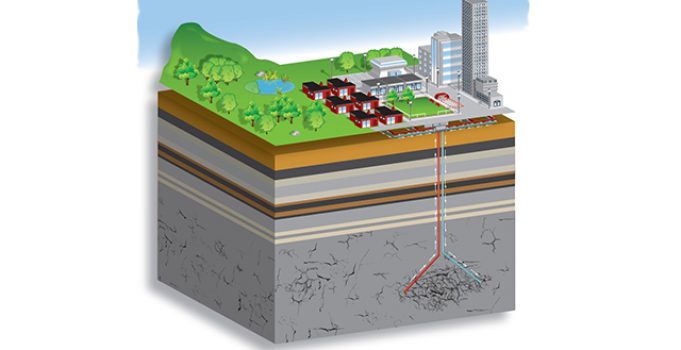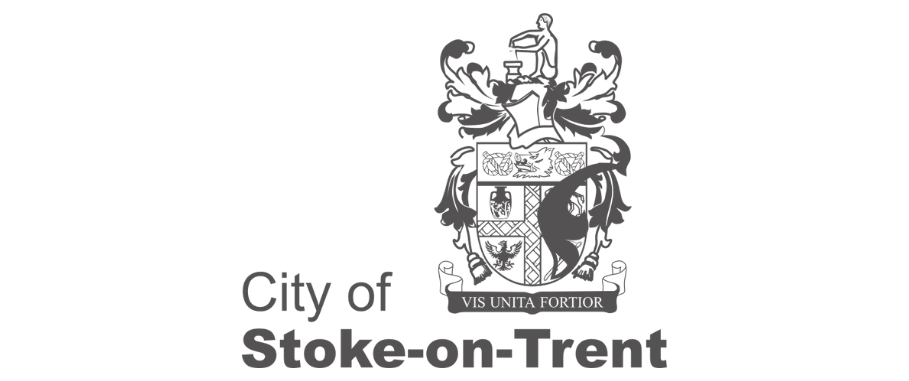
Grant boost for Stoke’s district heating network
Stoke-on-Trent has been awarded a £107,000 grant from the Department of Energy and Climate Change (DECC) towards the development of its flagship district heating network project.
The extra funding will be used to explore means of recycling heat from the area’s ceramics manufacturers into the network.
Stoke’s deep geothermal district heating network is the flagship project in the Stoke-on-Trent and Staffordshire Local Enterprise Partnership’s Powerhouse Central City Deal previously agreed with the government, which also includes a smart energy demonstrator project at Keele University and a low-carbon taskforce, in partnership with the Staffordshire Chambers of Commerce.
The aim is to establish Stoke-on-Trent and North Staffordshire as a national leader and innovator in sustainable energy, and the new funding has been welcomed by LEP chairman David Frost CBE.
David Frost said: “This is good news for North Staffordshire which is increasingly seen as an area of technological innovation, where new developments will create skilled jobs. We have the opportunity to position Stoke as a leader in this emerging energy sector.”
Councillor Terry Follows, Stoke-on-Trent City Council cabinet member for greener city, development and leisure, said: “This new funding is very welcome. It will be used to explore the feasibility of recovering waste industrial heat from ceramic factories to provide low cost heat into the network or direct to specific customers. It is a very exciting project and one that we are working in partnership with the British Ceramics Confederation and Dudson Ceramics to explore. The money will also be used to support the design of the network through a ground survey and to undertake a study into connecting homes through a retrofit programme.”
Laura Cohen, chief executive of the British Ceramic Confederation, added: “Wider use of heat recovery is an important technology for the ceramic sector, including off-site use of heat that companies cannot recover economically themselves for further use in their industrial processes. So this project is very welcome.”
Parliamentary Under Secretary of State for Energy and Climate Change, Lord Bourne said: “The money that has been given to Stoke-on-Trent City Council is part of a push to change the way that communities heat their homes, businesses and hospitals – using wasted heat to warm buildings, cut bills and reduce carbon emissions.
“It is also an excellent example of how local people can work together with government to boost jobs and investment in their area.”
A total of £1.5 million has been shared out between 24 local authorities across England and Wales today. As well as helping to tackle carbon emissions, the 27 low-carbon heat projects benefiting from this money will potentially lower energy bills in local areas, tackle fuel poverty and create jobs.
The heat used by these networks are taken from places like rivers or mine water; biomass; waste or recovered heat. Low carbon heating is then provided to buildings through a system of insulated pipes carrying hot water.
Networks have the potential to supply heat to between 14% and 43% of UK buildings by 2050. DECC has been providing grant funding and expert guidance to support such networks since 2013 and these 27 new heat networks will mean that government funding is supporting the over 190 projects across the UK.
The successful local authorities will be offered grants ranging from around £16,750 to £120,600 to help set up their projects. In a related announcement during the 2015 Spending Review, DECC will also provide over £300m of capital funding to support up to 200 new heat networks.
Notes:
- Heat networks supply heat to a number of buildings or dwellings from a heat generated at a central source and supplied through a system of insulated pipes. Heat is generated centrally, rather than individual scale delivers carbon savings, and can reduce consumer bills.
- The Government’s Heat Network Delivery Unit was established in September 2013 to support local authorities exploring heat network opportunities though heat mapping, feasibility and detailed project development to business case.
- Grant funding is accompanied by guidance from experts in the unit.
- All bids were reviewed by a panel of engineering, financial and commercial experts with significant experience in heat networks development. Bids were assessed against a range of criteria including their previous work, consistency with DECC’s carbon objectives, credibility of the opportunity and local authority capacity and commitment. Grant offers are made subject to compliance with state aid regulations and agreement of a Memorandum of Understanding.


















